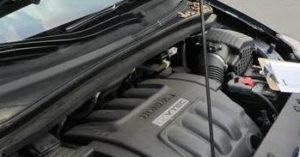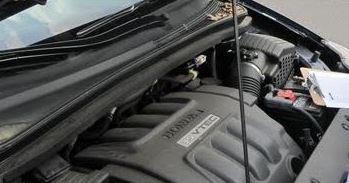 Car not starting? Rats! Literally, rats or mice could be the problem. As cold weather approaches, rodents like mice, rats, chipmunks and squirrels take shelter wherever they can, maybe even in your car. AAA automotive technicians say rodents will take up residence under the hood of a vehicle to get out of the cold, snow and wind. And because some car parts are made from renewable resources, such as soy-based wire coverings or body insulation made of natural products, the car could become a smorgasbord of treats for rodents, whose snacking can result in costly damage for car owners.
Car not starting? Rats! Literally, rats or mice could be the problem. As cold weather approaches, rodents like mice, rats, chipmunks and squirrels take shelter wherever they can, maybe even in your car. AAA automotive technicians say rodents will take up residence under the hood of a vehicle to get out of the cold, snow and wind. And because some car parts are made from renewable resources, such as soy-based wire coverings or body insulation made of natural products, the car could become a smorgasbord of treats for rodents, whose snacking can result in costly damage for car owners.
AAA technicians say they typically see this type of destruction more frequently as the weather gets cooler, especially if a car is not regularly driven. “Gnawed wires cause all sorts of electrical problems, including engine no-starts. Unfortunately, the cost to make repairs can run into hundreds of dollars and is not always covered under the owner’s new car warranty or car insurance,” says Sue Madden, spokesperson for AAA Mid-Atlantic. “Rodent damage is not something a car owner would think of needing protection from, however, our technicians have seen enough cases to say it’s a problem.” If you have to park a seldom-used car in a driveway or on the street, be sure to start and drive it from time to time. This can chase away mice that might be hibernating under your hood, and 30 minutes or so of operation will circulate the vehicle lubricants and help keep the battery charged.
Since the early 2000s, requirements have been put upon automakers to manufacture cars that are more fuel efficient and environmentally-friendly. To meet those requirements, certain car parts are being engineered with biodegradable elements. Soy-based wire coating is one example, along with insulation made from natural products like sisal and flax, and seat cushions made from coconut fiber. “While advances in car construction can be beneficial to the environment, there may also be unforeseen consequences such as making your car more appetizing to rodents,” says Madden.
AAA technicians advise that you not park a seldom-used car on the street or in a driveway, but if you must there are ways to limit rodent infestations. While some people advocate using moth balls or pepper spray under the hood, fumes from these products are unhealthy for humans as well. Alternatives include cotton balls soaked in peppermint oil, or more conventional measures such as mouse traps, poisons and ultrasonic repellant devices. A number of non-toxic, plant-based rodent repellents are also available, and copper screening (not plastic or other metals) can be used to seal off air intake openings because rats don’t like its taste.
[TLS]

